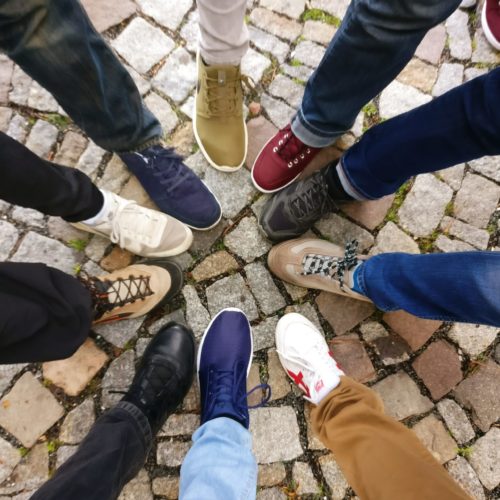This is the second in a series about loneliness. If you missed the first post, click here.
——————-
Many years ago, I was coaching a client who was about to attend a conference related to her work. This was a person who was distinguished in her field, recognized by peers and managers alike as being a top-notch thinker. She was not only brilliant but someone who was known for her loyalty and work ethic.
We talked about networking at the conference. Her response to the idea of meeting new people stunned me.
“Who would want to talk to me?”
At the time, her words puzzled me. Here was an accomplished woman, well into a successful career, thinking she had nothing to offer.
Now, after many years of understanding and feeling my emotions, I can see that she had shame, and maybe its close cousin, loneliness.
Shame doesn’t always lead to loneliness. But prolonged loneliness often leads to shame. Shame is the lie of unworthiness.
In truth, you are worthy, just by the fact that you exist as a human being. You are deserving of dignity, of love, of mattering. You have something to offer of value.
Why talk about this now? Because there is an epidemic of loneliness. Vivek Murthy, two-time U.S. Surgeon General talked about his own experience with loneliness recently in a New York Times op-ed, after his first stint as surgeon general ended in 2017:
“After my job ended, I felt ashamed to reach out to friends I had ignored. I found myself increasingly lonely and isolated, and it felt as if I was the only one who felt that way. Loneliness — like depression, with which it can be associated — can chip away at your self-esteem and erode your sense of who you are. That’s what happened to me.”
It takes a village to raise someone out of shame. Murthy talks about the support he got from friends and family, to help him remember who he was, at his core, to remind him repeatedly that he was loved unconditionally.

Photo by Ingo Joseph
All of this reminds me of the power of connection, how relationships are important for not only my mental and emotional health, but also my physical health. Prolonged loneliness has been linked to inflammation, increased risk of heart disease, and poorer immunity to viruses. It also negatively impacts the quality of sleep. According to the book, Growing Young:
“…a strong support network of family and friends lowers mortality risk by 44 per cent while exercise only lowers it by about 23 per cent.”
Some might use this as an excuse for skipping a spin class to meet a friend for a drink. Instead, you can view it as a reason to exercise and connect with a friend.
We are wired to connect. When loneliness shows up, it’s a signal that we are in need of connection, just as thirst reminds us that we are in need of hydration. Ignore the voice of “who would want to talk to me?” and reach out.
Or better yet, as Dan Pink writes in his book, The Power of Regret, after realizing that he regrets not forging enough close connections with friends, mentors, and colleagues, “Now I try harder to reach out.”
I am also trying harder to reach out. My husband and I have made it a priority to visit friends and family, traveling across the Midwest. I peek into my LinkedIn feed a few times a month, and direct message people in my network who are doing great things. I make spontaneous calls to friends and colleagues while out for walks. This has added fun and vitality to my life.
Loneliness is a complex topic and yet, it’s something that we can all relate to. We are not alone, in our experience of loneliness.
For a deeper look at loneliness, I recommend the book, Together: The Healing Power of Human Connection in a Sometimes Lonely World by Vivek Murthy, MD.
